Constitution Day: "Soul of Constitution is Bhartiya"
24 Nov 2022 17:33:49
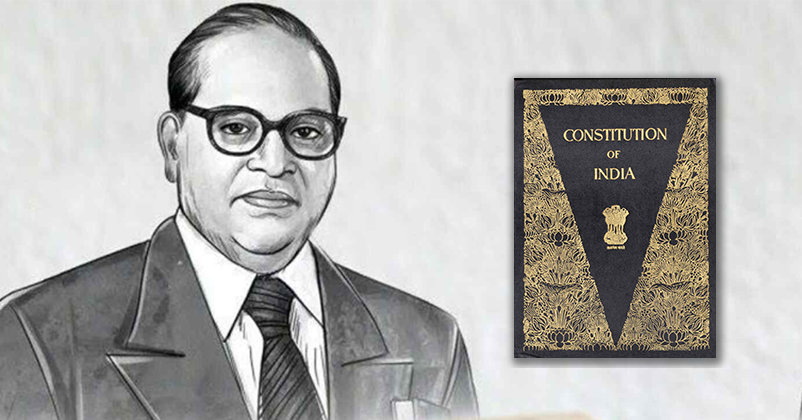
Our Constitution is inspired by our history, our values and our requirements. It is certainly a truth that many of the elements of organizational structure of Institutions like Parliament, Judiciary etc. are inspired by other countries, but the soul, values and principles which guides them or must pave way for future course must be Indian values. Constitution Day is celebrated in India on November 26 every year. On November 26, 1949, the Constituent Assembly of India adopted the Constitution of India and it came into force on January 26,
1950.
Drawings and Paintings used in Original Copy of the Constitution:
1. It was done by famous artist Shri Nand Lal Bose from Shantiniketan.
2. Illustrations provide us insight into values and intent of the Constitution-makers.
3. The historical illumination in Constitution certainly suggests a historical connection and provides a clear message about continuum and connection to our Cultural roots.
4. It is the only our Constitution which has illustrations. No other Constitution has such features.
Indus Valley Civilisation
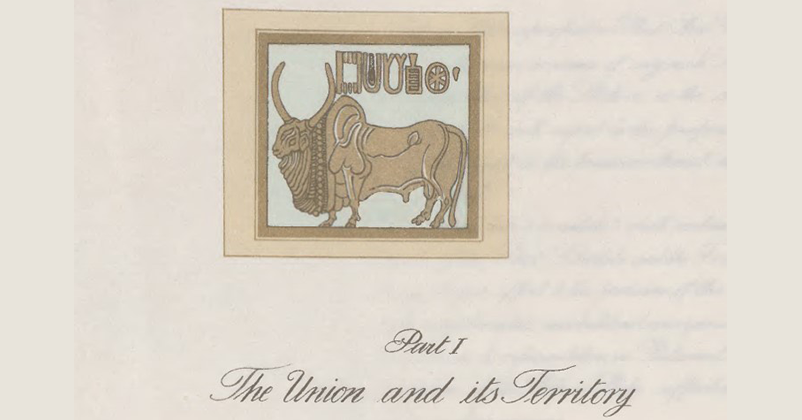
Vedic Ashram
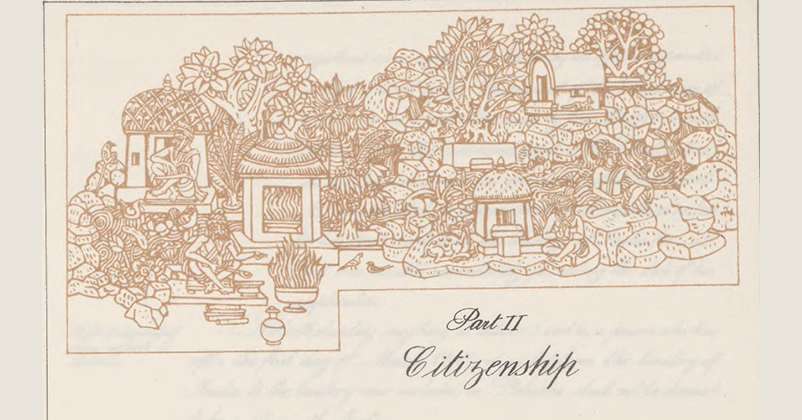
Conquest of Sri Lanka and recovery of Sita Mata
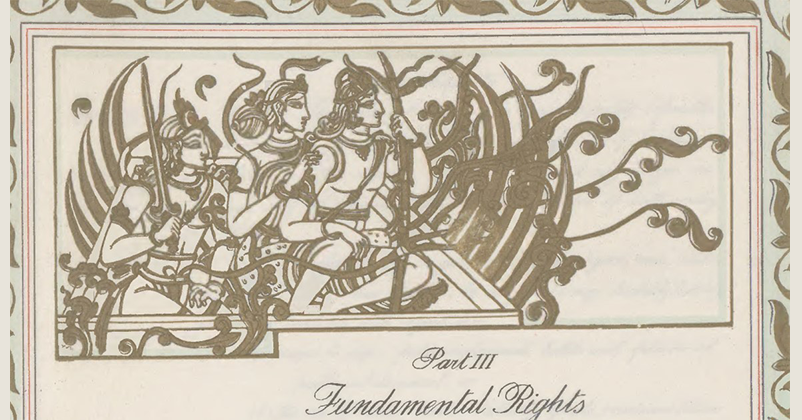
Shri Krishna Propounding Gita to Arjun
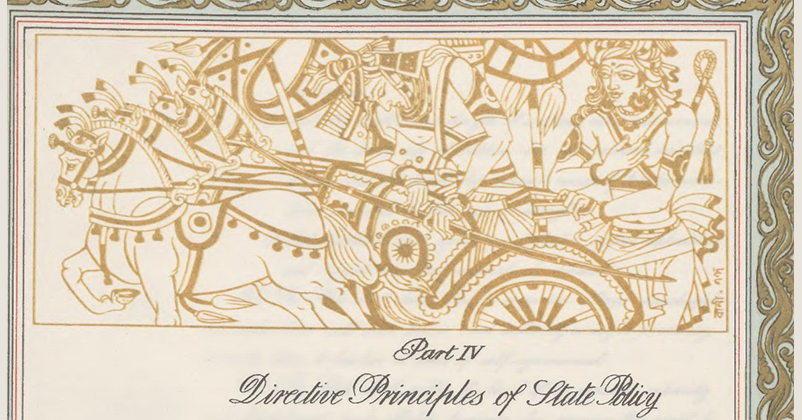
Netaji and other patriots trying to liberate India from Outside
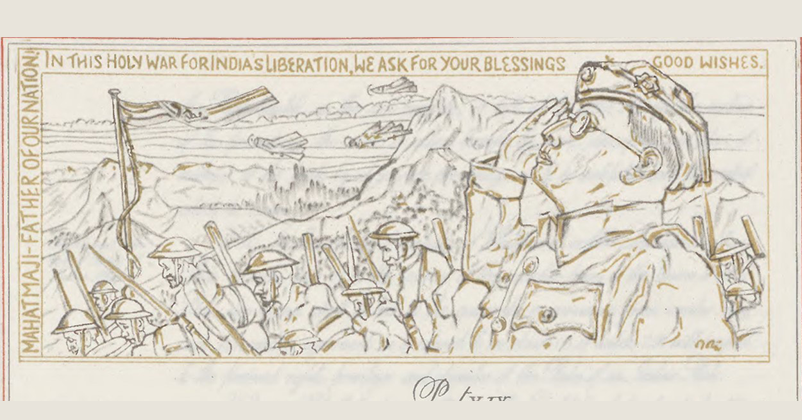
Mahatma Gandhi
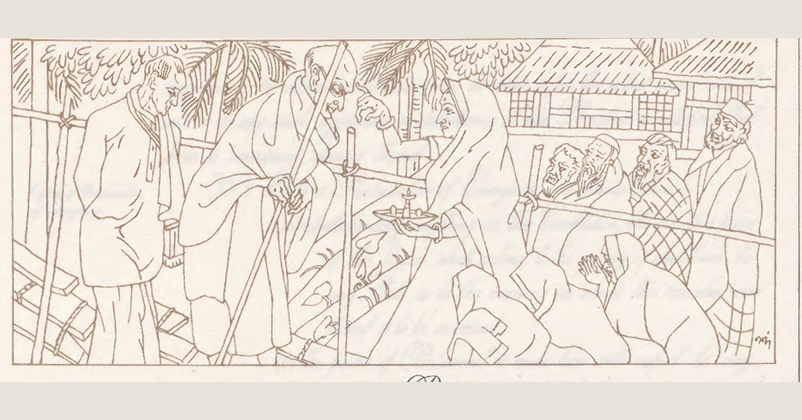
MOTTOS of Constitutional Bodies and other agencies
When India got independence from the British imperialism, India made a conscious and clear choice to revitalize, reinvigorate and inspire herself from the eternal Indian civilization. The institution builders in the first decade of post-independence laid down a tradition that our Institutions will be identified and driven by our own values and principles enshrined and inscribed in our rich and prosperous heritage of culture and knowledge. Over the course of period, India has continued this tradition. A cursory study of mottos of these agencies clearly establish this fact.
1. Many agencies of Union as well as States have mottos derived from Indian Knowledge Tradition.
2. National motto of India: Satyamev Jayat (Truth alone Triumphs)
3. Supreme Court of India: Yato Dharmastato Jayah (यतोधर्मस्ततो जयः) (Where there is Dharma, there is victory)
4. CAG: Lokhitrartha Satyanishtha (Dedicated to truth in public Interest)
5. Archaeological Survey of India: प्रत्नकीर्तिमपावृणु (Let us uncover the glory of the past)
6. All India Radio: बहुजनहिताय बहुजनसुखाय
7. Intelligence Bureau: जागृतं अहर्निशम् [Wide awake day and night]
A simple exercise aimed at merely finding these mottos and their interpretation can be basis of good literature to drive home the point.
Inscriptions in Parliament (Old as well as New one)
1. A number of scholars assert that Parliamentary Building and their structures, designs, inscriptions have an impact on the working of the Institution.
2. They believe that it contributes to the political culture of the country.
3. Our Parliament (old as newly built) has several quotations from our Past.
4. Shloaks from Geeta, Mahabharta, Upnishadetc. have been used. Few Persian couplets have also been used.
5. New Building will also have inscrpited Shloks etc.
6. Dharma Chakra Pravartnaya, the noble words, ‘Heavens Light Our Guide’ are inscribed on the Chairman’s Chair of Rajya Sabha.
7. 58 paintings in outer corridor of Parliament.
8. From Vedic age to present times. Shloaks are also written in Parliament.
9. Gate 1 of Builiding: The English equivalent of the same is: “Open the door to thy people And let us see thee For the obtaining of the Sovereignty”
10. Some photos are also attached here.
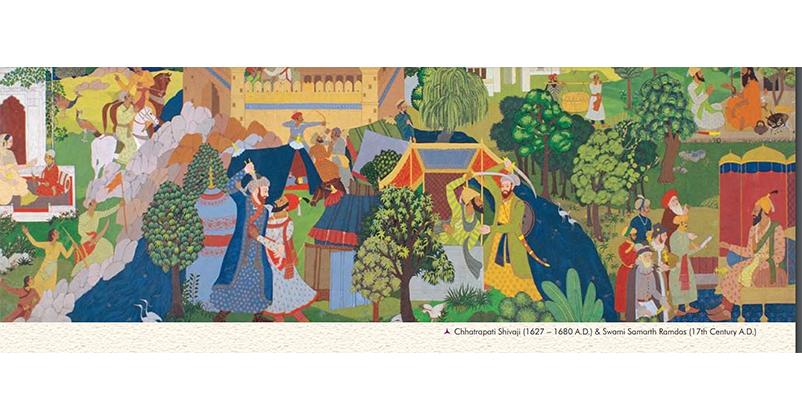
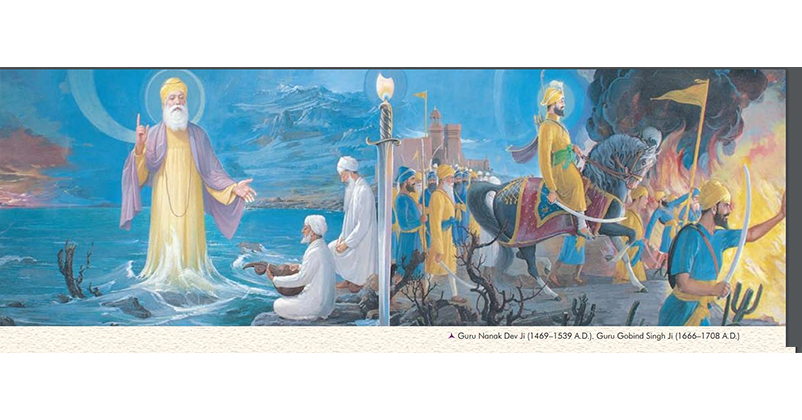
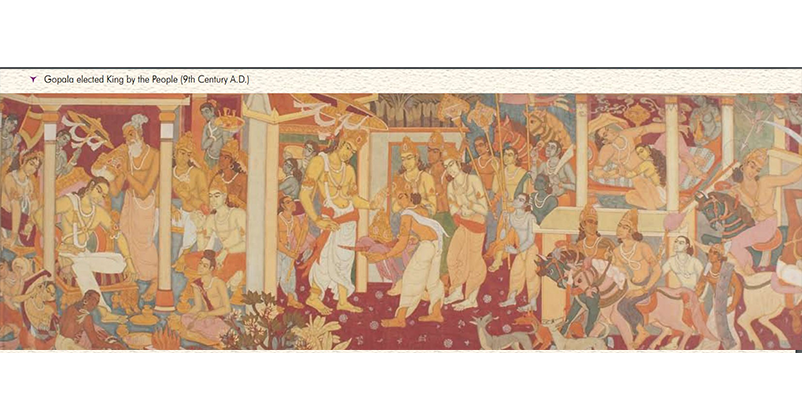
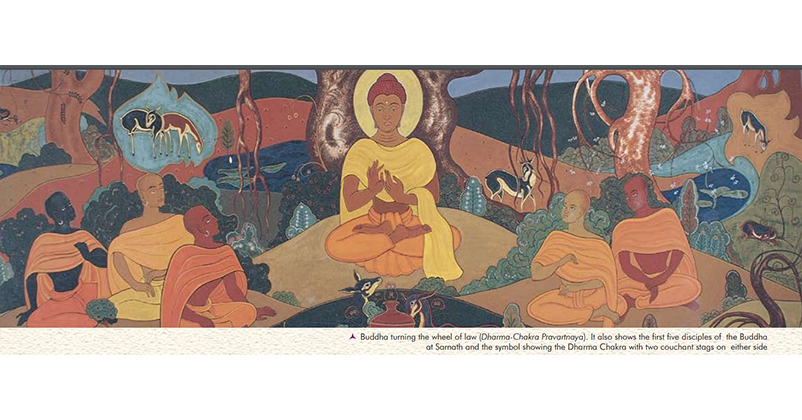
Similarly there are several other such paintings which may be found in the Parliament.
Idea of Constitution and Constitutional values are inspired by our culture and our history
During the entire course of our History, we have been run by clearly articulated and written system of rules and regulations supported by unwritten principles, customs, traditions and practices. From the times of Vedas to the present times, our civilization and culture has believed in idea of rule-based society. Large number of Smritis and granths easily leads to this conclusion. Much before Magna Carta of the West, we have very advanced development of jurisprudence, legal principles in our Country.
Therefore, we must counter and defeat arguments which see the constitution as a gift of the West or mere export of better values of the west. It is only due to usage of English and easy understanding that we have proceeded with the term ‘constitution’ but the Hindi word ‘Samvidhan’ makes it aptly clear. We must strongly assert that idea of Constitution as a basic document of governance is not an exported idea but an Indian-idea which is based in our rich history.
Secondly, there has been conspiracies and fraudulent attempts by Left cabal and some others to interpret the Constitutional values through the Lenses of the West or ideologies and concept originating in the West. We must defeat and expose them. We should strongly and assertively say that the Constitutional values and ideals like Democracy, Secularism, Socialism, Justice, Liberty, Equality, Fraternity, Republic, Sovereignty are Indian values and ideals. Their content, expanse, and interpretations should be based upon the ideals and practices of India. Our texts in various languages and practices during different times across India should provide the content of these ideals.
In the light of our constitutional history post 1947, ‘Constitution as a living and organic document’ must be seen, interpreted and evolved in values and ideals of India. We must make all-out effort to ensure that our Constitution is interpreted in a manner which is rooted in our rich history, culture, ethos and also forward looking towards newer challenges and opportunities. There is a necessity to free Constitution from interpretations and analysis which are driven by clutches of colonized mindset, blind imitation of west, conformist attitude towards West.